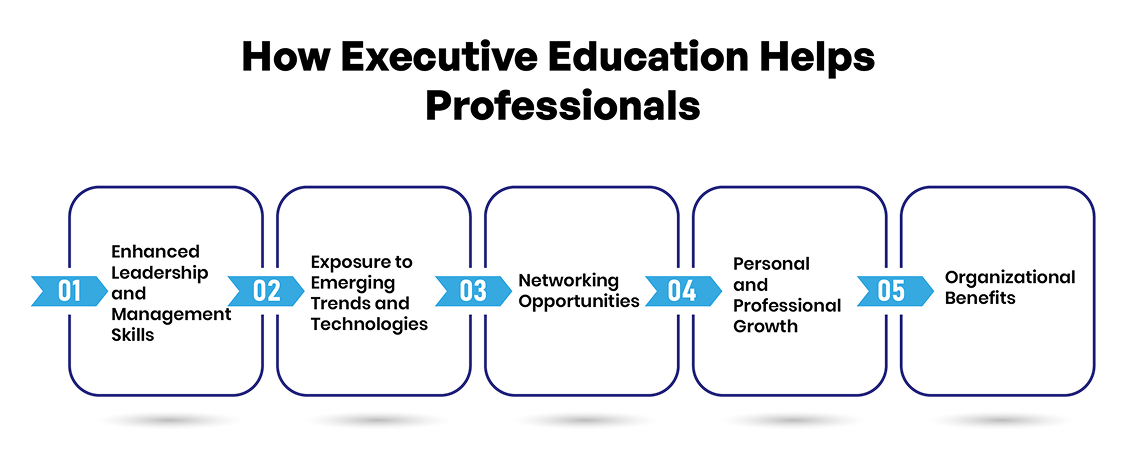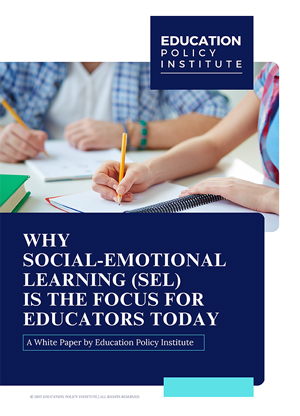Amidst today’s speed-driven global economy, the pace of change is relentless. Disruptive technologies, shifting workforce dynamics, and global crises like the COVID-19 pandemic have reshaped the way businesses operate. For leaders and professionals, this means that the traditional models of leadership development are no longer sufficient. Executive education, once considered a mid-career boost, has transformed into a critical, ongoing process that supports leaders in staying agile, resilient, and prepared for future challenges.
What is Executive Education?
Executive education encompasses specialized academic programs designed for professionals in managerial or executive roles. These programs, typically offered by business schools and universities, aim to enhance leadership, strategic thinking, and management skills without leading to a formal degree. They are often short-term, ranging from a few days to several weeks, and focus on practical, real-world applications.
According to the Oxford Research Encyclopedia of Business and Management, executive education consists of short, intensive, non-degree programs offered by university business schools to attract individuals in or near top executive positions. Similarly, Berkeley Executive Education describes it as topic-based, intensive academic programming for professionals and business executives designed to improve their business, management, and leadership skills.
How Executive Education Helps Professionals
Executive education equips professionals with advanced skills and insights needed to navigate complex business environments. It supports continuous growth, enabling leaders to stay competitive and drive meaningful change within their organizations.

-
1. Enhanced Leadership and Management Skills
Executive education programs provide participants with advanced tools and frameworks to refine their leadership styles and decision-making capabilities. By engaging with contemporary business challenges and case studies, executives can develop a more strategic outlook and improve their ability to lead teams effectively. Such programs help attendees become more proficient in the latest technologies and trends, assisting them in their ability to transfer that knowledge to their current positions. -
2. Exposure to Emerging Trends and Technologies
Staying updated with the latest industry trends is crucial in a constantly evolving business environment. Executive education offers insights into emerging technologies, market dynamics, and innovative business models, enabling leaders to anticipate changes and adapt proactively.
The growing range of executive programs enables professionals to manage change, support career ambitions, and ensure high-level performance without interrupting career progression. -
3. Networking Opportunities
Participants in executive education programs often come from diverse industries and backgrounds, providing a rich environment for networking. These interactions can lead to valuable collaborations, partnerships, and knowledge exchange, broadening one's professional horizons.
According to the Financial Times, executive coaching is increasingly promoted by EMBA providers as a crucial career development service, with statistics showing a significant rise in coaching services among its member programs. -
4. Personal and Professional Growth
Beyond technical skills, executive education nurtures personal development by encouraging self-reflection, resilience, and adaptability. Participants often report increased confidence, improved communication skills, and a renewed sense of purpose in their professional roles. -
5. Organizational Benefits
Organizations that invest in executive education for their leaders often witness improved performance, innovation, and employee engagement. By equipping leaders with advanced skills and knowledge, companies can navigate challenges more effectively and maintain a competitive edge.
Gail Golden Consulting highlights that companies investing in learning opportunities for their employees deliver stock market returns five times greater than their less learning-oriented competitors, emphasizing the tangible benefits of executive education.
Executive Education in the Years Ahead
Executive education is undergoing a significant transformation to meet the demands of a rapidly changing world. As industries evolve, these programs are shifting to focus on innovation, adaptability, and lifelong learning for modern leaders.

-
I. Digital Evolution in Executive Learning
The digital revolution has transformed executive education, making learning more accessible, flexible, and interactive. With online platforms and immersive technologies, professionals can now gain critical skills anytime, anywhere.-
1. Online and Hybrid Learning Models
The pandemic significantly accelerated the shift from in-person to online and hybrid learning models. Restrictions on travel and in-class gatherings prompted institutions to adopt digital platforms rapidly. As a result, live-online sessions, asynchronous modules, and virtual collaboration tools became mainstream. Unlike the earlier rigid formats, these allow professionals to access high-quality education without leaving their jobs or homes.
Notably, this shift isn't just temporary. Top programs now integrate immersive tech tools like simulations, virtual reality, and gamified learning to create engaging environments that mirror real-world complexities. These enhancements enrich decision-making skills and enhance strategic thinking — essentials in today’s uncertain world. - 2. Leveraging Emerging Technologies Executive education is no longer confined to lectures and case studies. Programs increasingly incorporate AI, big data, and machine learning not only to customize content delivery but also to teach leaders how to use these technologies effectively in their roles. By interacting with data-driven insights and scenario-based learning, participants build relevant skills in predictive analytics, automation strategies, and tech-led innovation.
-
1. Online and Hybrid Learning Models
-
II. The Rise of Lifelong and Personalized Learning
Lifelong and personalized learning are becoming essential in today’s fast-paced world, where skills need constant updating. Executive education is evolving to offer flexible, targeted learning experiences that align with individual career goals and industry demands.-
1. From One-Time Programs to Lifelong Journeys
Executive education has moved beyond single-course credentials to continuous, stackable learning paths. As career spans increase and industries undergo constant transformation, professionals need to update their skills more frequently. Programs now offer micro-credentials, short sprints, and modular certificates that can be accumulated over time toward larger qualifications, like an EMBA.
This new model supports learning at one’s own pace, while remaining agile in the face of industry-specific disruptions. Whether pivoting to a new role, addressing skill gaps, or preparing for leadership transitions, professionals can now choose exactly what, when, and how to learn — over the span of an entire career. -
2. Custom Learning for Real-Time Application Modern executive programs emphasize relevance and immediacy. Instead of generalized content, professionals seek learning that solves real-time business challenges. Programs are designed with actionable insights, and often co-created with industry leaders to ensure applicability. Leaders learn about innovation strategy while working on live projects, or study organizational change by analyzing internal case studies from their own companies.
Moreover, peer learning is gaining ground. Working alongside peers from diverse industries and geographies allows leaders to exchange perspectives and build problem-solving capabilities across cultural and contextual boundaries.
-
1. From One-Time Programs to Lifelong Journeys
-
III. Executive Mindset: Leadership for an Uncertain Future
In an era defined by rapid change and uncertainty, cultivating the right mindset is essential for effective leadership. Executive education plays a vital role in shaping leaders who can think strategically, adapt quickly, and inspire confidence in the face of unpredictability.-
1. Developing Agile and Ethical Leaders
The definition of leadership is evolving. Today’s executives are expected not only to deliver financial performance but also to champion sustainability, diversity, and ethical governance. Executive education now integrates modules on ESG (Environmental, Social, Governance), purpose-driven leadership, and inclusive practices.
The focus is also on agility — the capacity to respond quickly to disruption and change. Programs are emphasizing adaptive thinking, emotional intelligence, and resilience. These qualities are essential in uncertain times, allowing leaders to stay composed, align teams, and innovate under pressure. -
2. Global Orientation and Cross-Cultural Competence As markets become more interconnected, executive education is increasingly international in outlook. Cross-border collaborations, global faculty, and international cohorts provide leaders with exposure to new markets and diverse ways of thinking.
Top programs organize global immersion experiences or virtual international forums to broaden participants’ worldviews. This encourages global citizenship and enhances their ability to navigate geopolitical shifts, cross-cultural negotiations, and global supply chain complexities.
-
1. Developing Agile and Ethical Leaders
Conclusion
Executive education is no longer just an enhancement — it's a necessity. In a world where disruption is the norm and change is the only constant, leaders must embrace learning not as an occasional pursuit but as an ongoing journey. The future of executive education lies in its ability to equip professionals with not only knowledge, but also the mindset and skills to lead with confidence, empathy, and strategic foresight.
By adopting advanced technology, personalized learning paths, and a global perspective, executive education is helping to shape leaders who are not only prepared for the challenges of today, but also capable of shaping the future of business and society.
Latest
Trends blogs
- From Vision to Impact: Closing the Gender Gap in STEM Education
- Automation, Artificial Intelligence, and the Future of Human-Centered Education
- Mid-Career Education in a Changing Labor Market
- The Next Phase of STEM Education: The Role of Artificial Intelligence in Classroom Curricula
Focus blogs
- Research-Driven Education: Strengthening Strategies, Policies, and Classroom Practice
- Professional Certifications for Career Growth: What Students and Young Professionals Need to Know
- Building a High-Impact Center of Excellence: What You Need to Know
- Beyond Graduation: The Importance of Lifelong Learning in Higher Education





